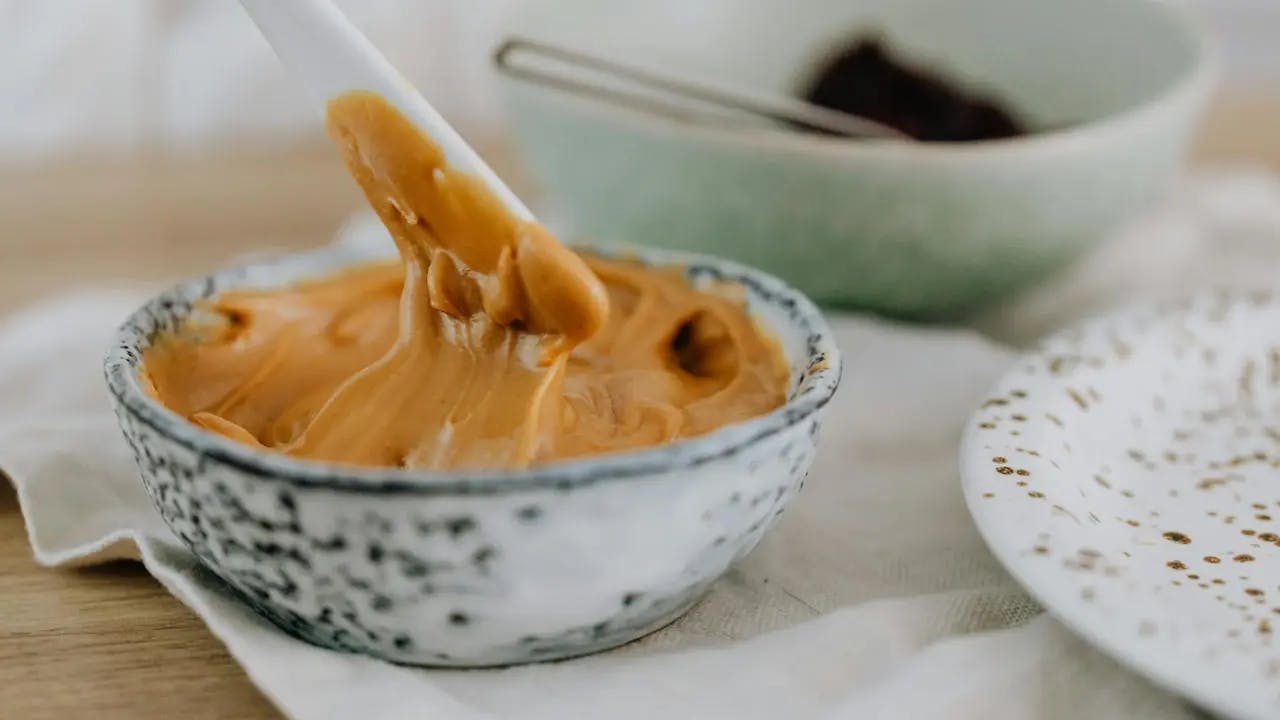How To Pick A Healthy Peanut Butter
•Food - general

Share
If there's one food that unites Man Shakers, it's peanut butter. With protein, nutrients and healthy (unsaturated) fats, peanut butter is a delicious spread that can also be quite nutritious. However, not all varieties are created equal, with some spreads proving better for your overall health than others. Let’s check out what makes a good peanut butter.
What Is Peanut Butter?
At a basic level, peanut butter is a paste made from ground-up peanuts. Peanuts are a legume (not actually a nut) that is naturally rich in protein and fibre. However, your bog-standard jar of peanut butter often has sugars, salt and preservatives added to improve the taste and shelf life — which can reduce the health benefits.
Likewise, while peanut butter is full of good monosaturated fats, which are linked to better brain and heart health, it can be quite high in calories, so only eat it in moderation (30g max per day).
How To Choose A Healthy Peanut Butter
Experts believe that the healthiest peanut butter varieties generally contain little to no added ingredients beyond peanuts and a touch of salt. In terms of salt content, you should be looking for a variety with less than 100mg of sodium per serving (tip: one serving is 2 tablespoons, not half a jar).
Likewise, if you are eating a variety that has been sweetened with sugar, ensure that it has less than 5g of added sugar per serving. If it has any more than that, it’s probably worth steering clear of it. Likewise, try to avoid flavoured peanut butter varieties.
Also, look into the stabilisers added to your peanut butter. A stabiliser is an additive placed into food to help it keep its structure and some of them can be quite unhealthy. One example of a stabiliser found in some peanut butter varieties is palm oil, which is high in saturated fat, and may boost your bad cholesterol levels.
Beware Low-Fat Spreads
According to some experts, low-fat or reduced-fat peanut butter varieties can be worse for you than their full-fat cousins. This is because peanut butter mainly contains unsaturated (or healthy) fats and when removed, extra salt and sugar are added to improve the flavour. Many low-fat peanut butter varieties tend to have the same amount of calories as normal peanut butter, but often they may not fill you up as much.
Powdered Peanut Butter
If you’re on a weight loss journey and wish to enjoy peanut butter without the extra calories, one other option is to consume powdered peanut butter, which is made by pressing the natural oils out of peanuts and then grinding them into a powder. This peanut flour contains only 43% of the kilojoules per serving relative to regular peanut butter and is a great addition to oats, smoothies or a Man Shake.



